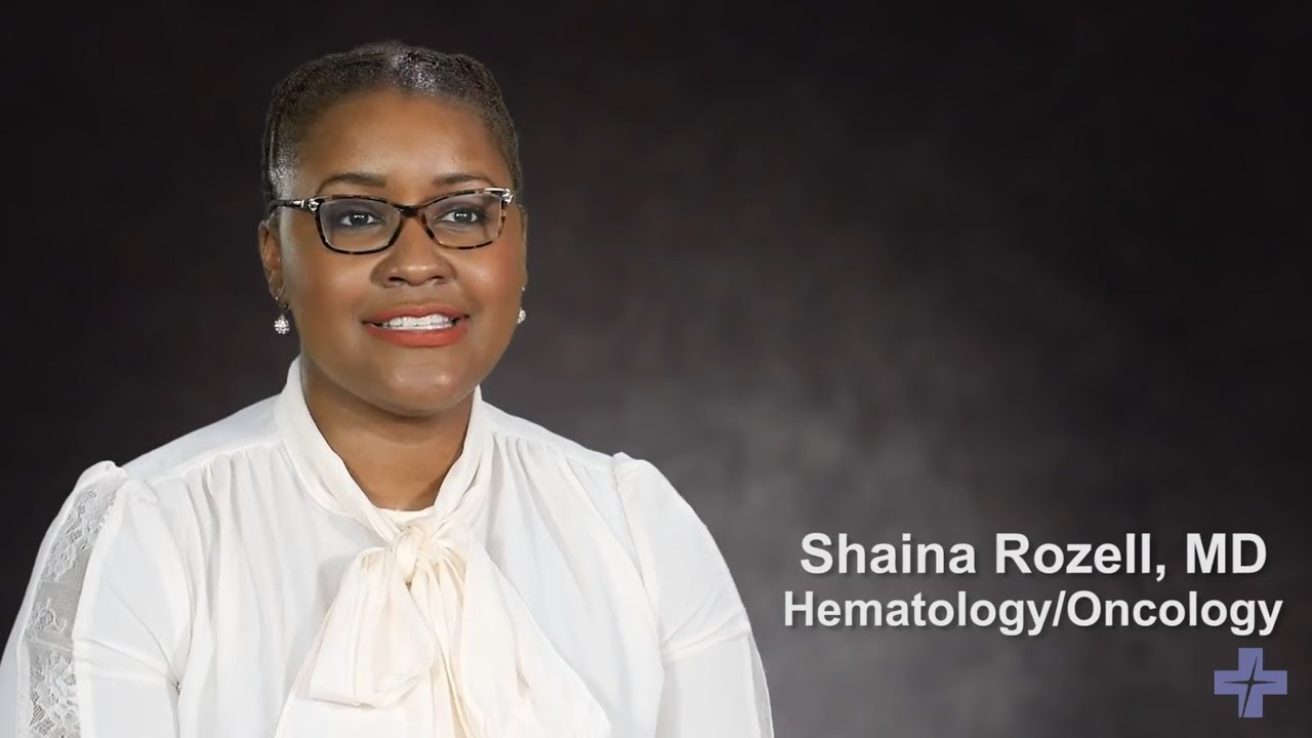In this MD Newsline exclusive interview with oncologist Dr. Shaina Rozell, we discuss why diversity in the healthcare workforce matters and how unchecked implicit bias can hurt patient care. We also discuss how to increase recruitment and enrollment of African Americans in cancer clinical trials.
MD Newsline:
Can you speak to why diversity matters in the healthcare workforce?
Dr. Shaina Rozell:
“I don’t think it’s just necessarily looking like them [ that matters]. It’s talking like them. It’s experiencing life like them. When my patients see me walking in the room, and they say, ‘oh my goodness. One, you look like me. But two, you can make it easy for me to understand. I know what’s going on with my body.’
I think it’s a combination of those things. ‘Have you walked my road? Do you not just walk my walk, do you talk my talk?’ I think those are some of the things that we need to improve in our healthcare infrastructure, getting more African American providers, that can make it more attainable for African American communities to do better.”
MD Newsline:
How can unchecked implicit bias hurt patient care?
Dr. Shaina Rozell:
“The reality is, there’s only so much cultural sensitivity training can do. Right? I think we’re doing a better job, but again, the implicit bias still exists, no matter what. No matter how much cultural sensitivity training you have, there’s still that implicit bias present.
Many of my colleagues who are not African Americans are great physicians. But, they still may not connect with an African American patient the way I may, and that’s just because of implicit bias.”
MD Newsline:
How do you think we can increase recruitment and enrollment of African Americans in cancer clinical trials?
Dr. Shaina Rozell:
“That is hard. One of the main reasons is you gotta increase the number of providers that look like them. I think that is the main answer to actually getting African American people to enroll in clinical trials. If the trial doesn’t look like me, then I’m not going to enroll. Ok? I think, by far, many of my African American patients trust me. And most of my patients trust me. But, my African American patients seek me because I’m African American, and they trust me.
And so, if I say, ‘hey, I want you to enroll in the clinical trial,’ they will do it because they trust me. So, if you don’t have the trust there, I think you don’t have the foundation, and you won’t have patients enrolling in clinical trials.
So I think we really need to do better in terms of getting more African American providers. We talk about African American physicians and female physicians in oncology. I represent 2%, which I think is horrible, and we have to do better in diversifying our healthcare workforce if we really want people to trust and get involved in clinical trials.
They’re not going to enroll. They won’t. And so, whether it’s you having clinical trials opened in your center or whether they’re at a tertiary center, I think we have to do a better job in recruiting and enrolling patients that look like us.
I’m sick of looking at trials and looking at the methods, and it says that only 2% of patients were African American patients. And so, when you go back and try to speak to your patient, and you talk to them about the way the trial was designed and say, ‘I do think this is a great drug…’ but then some of them, who are a little bit more astute may say, ‘but how many looked like me?’ And you say, ‘oh, there were a few. Not many.’ That’s not good enough. I think we have to do better.”
Responses have been condensed and lightly edited.







